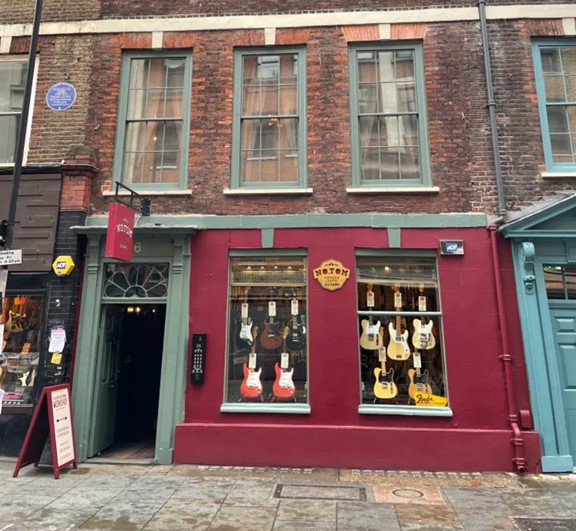The Denmark Street Slide
It’s just a little thing, one of those things that in themselves are no big deal, but when added up equate to one big irritant.
Here’s what I’m talking about.
When I order anything from any company, I’m asked to provide my name, address, and contact information (usually a phone # and email). So those retailers know how to get in touch with me. When I get to the “Submit Order” page, I’m sometimes given several shipping options (the mail, UPS, or FEDEX are most common). I choose an option and submit my order (usually the cheapest one). The retailer sends the shipper my order information, and in short order I get a tracking number and an expected delivery date – meaning that the retailer has integrated with the shipper to the extent that they can now relay the shipper’s tracking information to me.
That’s fine, but here’s the question: why does the retailer put it on the shopper to periodically find out the status of the promised shipment from that point on? On several occasions I have watched items being received by the shipper, make it from point A to point B to point C, and then… inexplicably get “lost” at point C for days (for some reason usually at a FEDEX distribution center), until I call the retailer to see if they can look into it, who then throws in the proverbial towel and ships me another item. Amazon does slightly better than that – if the item is not from a Marketplace retailer (in that case, shoppers are still on their own).
So, it’s kind of a “buyer beware” world, and like virtually every other online shopper, I’ve put up with this for years. Although it’s always been an irritant, I might not have felt compelled to write this piece had I not lost my slide bar.
Let me explain.
I’m a guitar player, and I occasionally use a slide bar, a piece of glass that I slip over a finger to slide up and down the strings. For over a decade I’ve been using one particular slide that I bought at a shop on Denmark Street in London UK. Denmark Street is kind of a mecca for afficionados of British blues and rock music, one block of funky little music stores in the heart of London that have been around since the 1960s, where many legendary guitarists found the Holy Grail instruments that helped make them famous. What’s more interesting is that the very shop where I bought the slide so many years ago is the same one that’s featured in the British television series “C.B. Strike” (if you haven’t seen these, I highly recommend them). So, the thing has some sentimental value to me.

But, I lost my precious “Denmark Street” slide at a gig last month, and after looking everywhere I got onto the web to order another from the very same manufacturer that supplied my first one to the shop I had visited long ago. And that’s when I discovered the Royal Mail. I received a notice that the system had received the package for delivery, when it left the UK, when it was picked up by the U.S. Postal Service, when it arrived at my local post office, when it went out for delivery, and when it was delivered to my mailbox.
So, a digital link was established from the from vendor => Royal Mail => USPS = > me, that lived for the life of the transaction. All I had to do was to read the emails that were sent to me from the Royal Mail, the party which took responsibility as the shipper-of-record.
The obvious question that comes up is, why can’t every shipper do that? After all, the information is “in the system”. It costs nothing to send the customer an email, and it reinforces the notion that the shipper cares.
The Bigger Issue
If there’s anything to be generalized from this one experience, it’s this: to the extent that any consumer-facing business wants to please its customers, it should “walk a mile” in the customer’s shoes, and experience what the customer experiences. Through the years, RSR has written a lot about how consumers want to “outsource” problems to retailers they can trust. And so, it makes sense that retailers would do everything in their power to build that trust. My little case study demonstrates that someone at the Royal Mail took the time to develop a nice, closed loop system using the available information to take all the guesswork out of it for me.
I hope I don’t lose any more slide bars, but if I do, I’ll go right back to the guy who sent me one from England. It’s a little thing that happens to mean a lot.
Final note: The café where I lost my Denmark Street slide found it behind a merchandise display. Yay me! Now I’ve got two Denmark Street slides!
